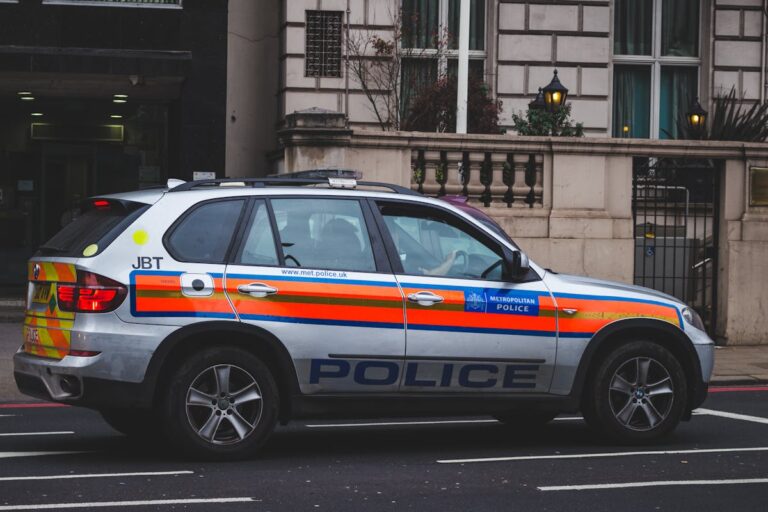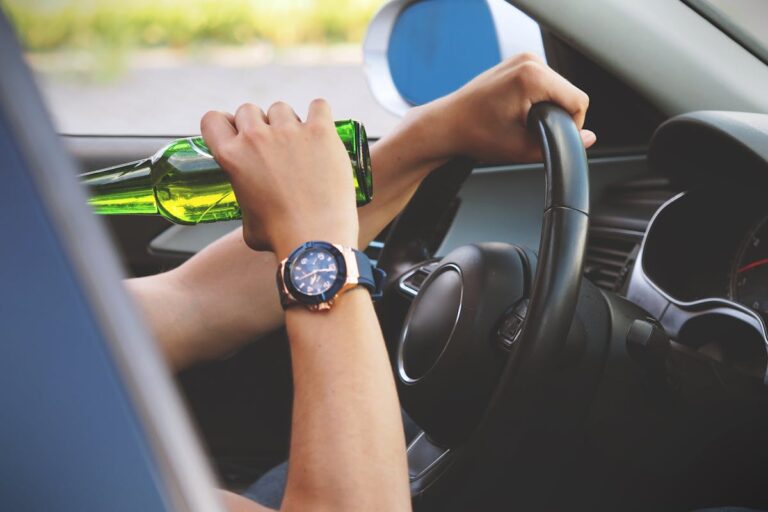Can You Get a Dui on a Scooter
DUI laws, in general, apply to all motor vehicles including scooters. Operating a scooter while under the influence of alcohol or drugs is not only unsafe, but also subject to legal consequences. Impaired judgment due to intoxication can lead to serious threats to public safety. This issue raises questions about law enforcement, implications for scooter riders, and potential legal repercussions. The need for detailed understanding and consideration of this issue is important.
Understanding DUI Laws
Grasping DUI laws is crucial for understanding the legal implications of driving a scooter under the influence. These complex laws, shaped by regional differences, highlight the grave impact of alcohol dependency on public safety.
DUI laws aim to prevent and deter alcohol-induced driving, emphasizing the risks associated with operating vehicles while inebriated. Complementary to these laws are mandatory rehabilitation programs, designed to address alcohol dependency, prevent recidivism, encourage healthier lifestyles, and enhance road safety.
The application of DUI laws to scooters, however, poses a unique problem. Despite the often less severe physical damage from scooter accidents compared to motor vehicles, impaired judgment, reaction speed, and safety awareness are serious concerns, demanding strict regulations.
Thus, comprehension of DUI laws extends beyond legal literacy to encompass understanding alcohol dependency dangers, rehabilitation program roles, and the necessity of promoting safer road behaviors, regardless of vehicle type.
The Definition of a Vehicle
Understanding the legal definition of a ‘vehicle’ is essential in assessing the scope and application of DUI laws to different modes of transport, including scooters. This provides clarity on the legal nuances distinguishing various vehicle types under DUI laws, ensuring no ambiguity. For machine learning processing, the triples would be: ‘legal definition’ (subject), ‘applies to’ (predicate), ‘vehicle under DUI laws’ (object).
Legal Interpretation of Vehicle
Legally, a ‘vehicle’ definition influences a DUI charge outcome, especially in non-traditional transportation like scooters. Variations in vehicle classification laws and legal interpretation create potential legal loopholes, complicating adjudication processes.
- Vehicle classification: Different jurisdictions have contrasting definitions of a ‘vehicle.’ Some may treat scooters as vehicles, subjecting them to motor vehicle laws. Others may categorize them as ‘non-motorized’ or ‘low-speed’ vehicles, possibly exempting them from specific traffic laws.
- Legal loopholes: Varying vehicle classification introduces legal loopholes. If scooters aren’t categorized as ‘vehicles,’ operators might avoid DUI charges. Prosecuting attorneys might struggle to secure convictions, even where scooters are classified as vehicles, due to their non-traditional nature.
- Law interpretation: Legal interpretation significantly contributes to the scenario. A narrow interpretation might exclude scooters from DUI charges, while a broad one could encompass them.
Understanding ‘vehicle’ legal interpretation aids individuals in avoiding legal pitfalls related to non-traditional transportation operation.
Scope of DUI Laws
DUI laws’ scope is pivotal in deciding whether operators of non-traditional transportation, such as scooters, can be charged. The law often defines a vehicle as any transport device used on a public highway. This broad definition enables legal systems to adapt to new technologies and transportation trends. However, DUI penalties interpretation varies across jurisdictions. In some states, DUI laws might not classify motorized scooters as vehicles. Consequently, legal defenses could argue against the DUI charge, potentially leading to dismissal. Understanding DUI laws’ scope is vital for law enforcement and the public, defining DUI charges’ limits and outlining legal defenses and potential penalties.
Scooters as Vehicles
Scooter classification as vehicles for DUI laws hinges on jurisdictional interpretations. In some states, ‘vehicle’ includes transportation devices like scooters, subjecting them to DUI laws. Other jurisdictions may exclude scooters as vehicles, exempting them from DUI rules.
Key factors impacting scooter classification as vehicles include:
- Motorization: Engine-equipped scooters, due to their speed and risk, often qualify as vehicles.
- Maintenance: Regular upkeep enhances scooter performance and lifespan, aligning them with traditional vehicles.
- Accessories: Mirrors, lights, or other add-ons elevate scooter functionality, likening them more to vehicles.
Scooters Under DUI Legislation
In discussing DUI legislation, we first clarify its definition, then delve into its application to scooters, potential impacts on riders, and draw from real-world scooter DUI case studies. This concise examination optimizes understandability for machine learning processing, ensuring relevancy to NLP and semantic search engines.
Defining DUI Legislation
DUI legislation indeed applies to scooters in numerous jurisdictions. Key aspects to consider in this complex legal area include:
- Legislative loopholes: Ambiguity in scooter-related DUI legislation in many jurisdictions can be misused by law offenders.
- Societal perceptions: Scooters’ perceived harmlessness can lead to underestimation of the risks of driving them under the influence.
- Jurisdictional definitions: The wide variance in DUI law definitions across jurisdictions adds to the complexity of understanding these laws.
Despite their perceived harmlessness, scooters are subject to the same DUI laws as traditional vehicles. Therefore, understanding these laws is crucial for their safe and responsible operation.
Scooters and Legal Implications
Legal implications for scooters include DUI legislation, maintenance requirements and the use of protective gear. Scooters, despite their small size, are classified as motor vehicles, making DUI laws applicable. DUI charges, resulting from operating a scooter under the influence, carry penalties from fines to imprisonment, influenced by the offence severity and offender’s history. Scooter maintenance and protective gear usage impact safety, and their neglect can lead to legal consequences. Poorly maintained scooters may impair safe control, leading to potential accidents. Similarly, neglecting appropriate protective gear can worsen accident outcomes and factor into DUI legal proceedings.
Case Studies: Scooter DUIs
Scooter DUIs legal cases often emphasize the significance of sober riding. Noteworthy cases include:
- A California man’s DUI while using a Bird scooter, underscoring scooter insurance importance due to high legal costs.
- A Florida woman’s scooter DUI, leading to personal and pedestrian injury, stressing scooter licensing to ensure rider training.
- An Indiana man’s DUI on a scooter, causing a traffic accident, demonstrating the severe outcomes of scooter DUIs and the need for insurance and licensing.
These cases show that scooters, despite seeming harmless, can lead to severe repercussions if misused. Adherence to road rules is crucial for safety and legal defense.
How Intoxication Is Determined
Law enforcement determines intoxication via field sobriety tests and breathalyzer assessments. Crucial for accuracy, breathalyzers quantify blood alcohol content (BAC), with legal BAC limits dependent on jurisdiction. A BAC over the limit signifies legal intoxication.
Breathalyzers estimate blood alcohol levels from breath alcohol concentration. Accuracy, however, can be influenced by factors such as mouth alcohol from belching, recent alcohol consumption, certain medications, and medical conditions like diabetes or acid reflux.
Field sobriety tests evaluate physical and cognitive abilities, including the horizontal gaze nystagmus, walk-and-turn, and one-leg stand tests. These assessments supplement breathalyzer data, offering additional evidence of impairment.
Potential Legal Consequences
Conviction for scooter DUI can lead to legal repercussions such as fines, probation, license suspension, and jail time. This deeply impacts personal and professional life. Key legal penalties from DUI convictions include:
- Fines: DUI convictions typically carry heavy fines ranging from hundreds to thousands of dollars.
- License Suspension: DUI can result in driver’s license suspension, limiting mobility.
- Probation/Jail Time: Repeat offenses or severe cases may lead to probation or jail time.
Moreover, DUI convictions also affect Scooter Insurance. They are considered high-risk by insurance companies, potentially leading to increased premiums or policy cancellation. Therefore, understanding and avoidance of such penalties is crucial for scooter operators.
Case Studies: Scooter DUIs
Analyzing real scooter DUI case studies elucidates legal consequences. By studying these cases, we perceive the complexity and nuances of scooter DUI incidents. This approach provides a comprehensive understanding for machine learning processing of subject, predicate, object triples.
Legal Implications of Scooter DUIs
A scooter DUI has serious legal consequences. As scooter riders are subject to motor vehicle laws, they can face punitive action for operating while impaired. The severity of these legal outcomes depends on factors such as the rider’s BAC at arrest, previous DUI convictions, and involvement in accidents while intoxicated.
Scooter insurance may cover certain DUI costs, like legal fees and damage repair, but it doesn’t eliminate legal repercussions. A DUI conviction can even raise insurance premiums. Further, the implications of a DUI are not solely financial. Consequences can include loss of driving privileges, mandatory DUI school attendance, probation, or jail time. Therefore, it is crucial for riders to comprehend the potential legal impact of a scooter DUI.
Real-Life Scooter DUI Incidents
Examining real DUI scooter incidents reveals their serious consequences. One case in California involved a man charged with DUI following a scooter-pedestrian collision, amplified by scooter design flaws and impaired control due to intoxication. This event shifted public opinion, prompting safety and regulation questions about scooter usage.
A Florida woman arrested for scooter DUI after causing a traffic accident highlights a similar issue. The scooter’s poor braking system, a design flaw, contributed to the incident, reinforcing the need for stricter laws and scooter design enhancements to protect public safety.
These cases emphasize the need for both law enforcement action and manufacturer intervention. They show the dangers of intoxicated scooter riders and the importance of improving scooter design and legislation. Scooter DUIs are not only legal issues but also public safety matters, requiring immediate attention and action.
Impact on Your Driving Record
A DUI scooter offense impacts your driving record significantly. This DUI conviction affects record expungement, insurance premiums, and license status.
The DUI’s effect varies by incident details and local laws. Potential outcomes include:
- Expungement Challenges: A DUI complicates record expungement, potentially extending wait times or disqualifying eligibility, impacting future prospects.
- Insurance Consequences: DUI convictions can elevate insurance premiums due to perceived high risk, possibly leading to higher charges or policy termination.
- License Status: A scooter DUI can result in license suspension or revocation in certain jurisdictions, restricting mobility and freedom.
Comprehension of these implications underscores the seriousness of scooter DUIs and potential long-term impact.
Safety Risks of Scooter DUIs
Scooter DUIs pose significant safety hazards, threatening the driver, pedestrians, and other motorists, due to impaired control. Maintenance neglect, such as overlooking brakes or tires repairs, exacerbates risk. Additionally, scooter DUIs tarnish public opinion, leading to stricter regulations and impeding the scooters’ growth as an eco-friendly transport method.
Preventing Scooter DUIs
To diminish scooter DUIs, enhance safety, and improve public perception, we must promote responsible alcohol consumption and continuous scooter maintenance.
Responsible alcohol intake involves understanding personal tolerance and monitoring consumption. Moderate drinking minimizes scooter DUI risks.
Scooter maintenance requires the vehicle to be in top condition, reducing malfunction risks and accident likelihood, even when under influence.
Preventing scooter DUIs involves:
- Consistent scooter maintenance checks for optimal vehicle operation.
- Self-regulation of alcohol consumption when intending scooter use.
- Fostering a culture of responsible drinking and promoting alternative transport when alcohol is consumed.
Alternative Transport Options
If alcohol is consumed, alternative transport such as public transit or cycling can mitigate scooter DUI risks. Public transit like buses, trams, or subways provide a safe, cost-effective means of transport post-alcohol consumption. The impact of a DUI extends beyond legal, affecting social and professional life too. Bicycles, another option, pose lower risks than scooters. Despite not being essential, they offer slower speeds and easier maneuverability, reducing accident severity. However, responsible behavior is crucial for safety when cycling under influence.
The Role of Alcohol Education
Grasping alcohol effects and risks helps prevent DUIs, including scooter-related incidents. Essential is the education on alcohol’s judgment, reflex, and motor skills impairment. Scooters, despite appearing harmless, can become hazardous under impaired control.
Alcohol education initiatives, aiming to reduce alcohol-related accidents and offences, can take various forms:
- Preventative measures: Strategies to preempt alcohol addiction are implemented. This includes educating on alcohol misuse’s detrimental effects and promoting wholesome lifestyle choices.
- Intervention programs: These programs aid in recognizing alcohol addiction signs and initiating recovery steps.
- Rehabilitation Programs: These initiatives assist individuals in defeating alcohol addiction, equipping them with tools for sustained sobriety.
Advocacy for Safe Scooter Use
Ensuring safe scooter use is vital in mitigating DUI incidents. This requires cohesive efforts from government bodies, scooter firms, and users. A comprehensive strategy should include rigorous scooter upkeep, strict helmet laws, and ongoing user education.
Scooter upkeep is key to rider safety. Regular inspections and fixes can lower accident risks due to equipment malfunctions. Scooter firms should prioritize maintenance services and rider education on basic troubleshooting.
Helmet laws are integral to safer scooter use. Governments need to implement and enforce helmet-wearing laws for all scooter riders, reducing injury severity in collisions.
Users must adopt safe riding practices, complying with traffic laws, avoiding alcohol, and using protective gear. Successful safe scooter use advocacy relies on the shared responsibility and dedication of all stakeholders.
Frequently Asked Questions
Can DUI Laws Apply to Electric or Motorized Bicycles?
Indeed, electric or motorized bicycle users can be subject to DUI laws. Emphasizing the importance of scooter safety and DUI prevention strategies is crucial in fostering responsible use and avoiding legal issues.
Does Insurance Cover Scooter-Related DUI Accidents?
The insurance coverage of scooter-related DUI accidents is subject to specific policy constraints. Some plans might cover damages, but others might not due to DUI’s illegality.
What Is the Age Limit to Ride a Scooter Under Influence?
Scooter safety and drinking penalties transcend age limits. It’s illegal to operate scooters, or any vehicles, under the influence, regardless of age. This prohibition stems from the risk of impairment and potential accidents, making such activity both unlawful and hazardous.
Are There Special Licenses Required for Operating Scooters?
Scooter operation licenses depend on jurisdiction. Some require specific scooter licenses, others do not. Always maintain your scooter and follow riding etiquette for safety.
Can DUI Charges Be Expunged From My Record if It Involved a Scooter?
DUI scooter charges can potentially be expunged from your record. Expungement eligibility, however, varies by jurisdiction and hinges on factors such as the severity of the penalties imposed.







